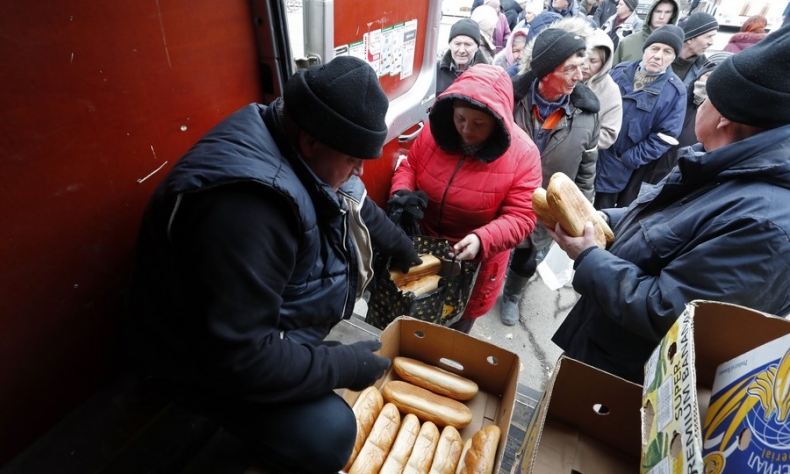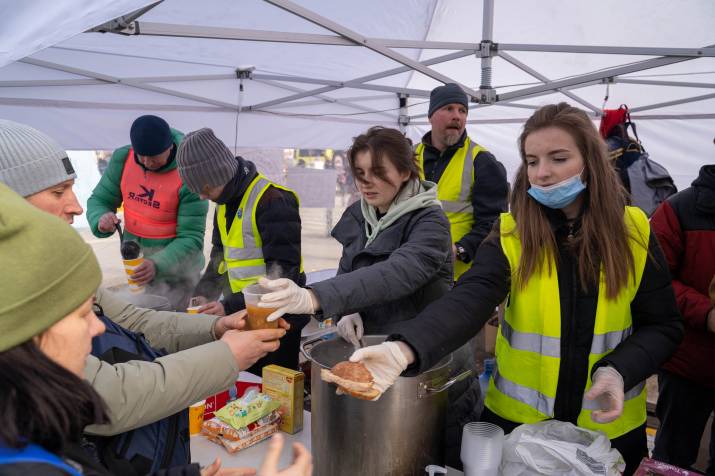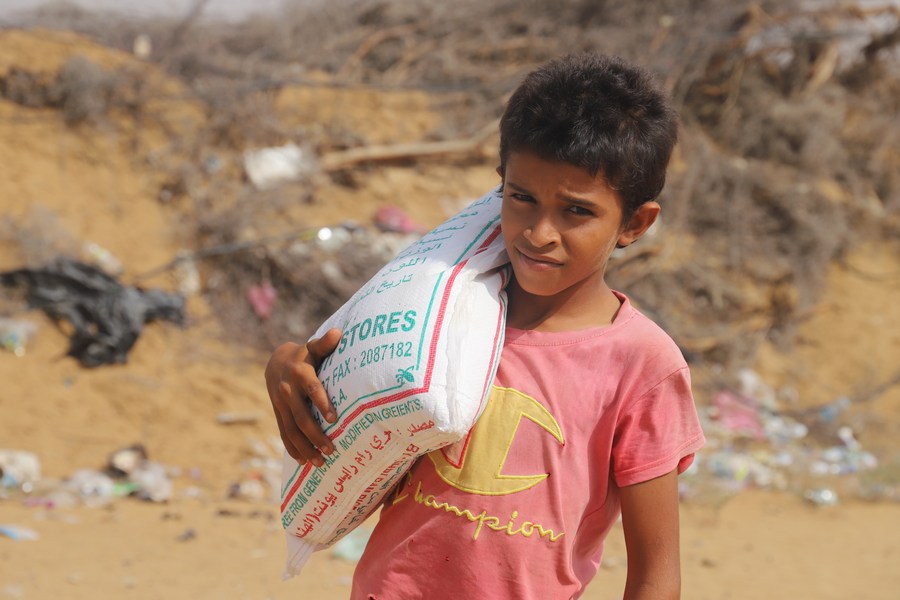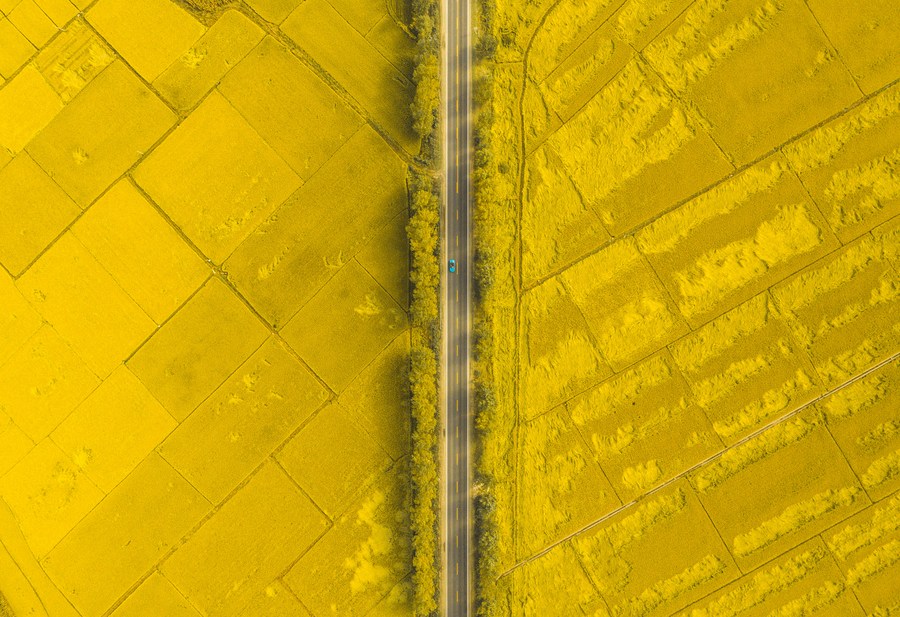Conflict Fuels Food Security Concerns

Countries, rich and poor alike, are suffering. At a time when global food supply chains are choked due to the pandemic, the Ukraine crisis is worsening an already dire food security situation.
The Ukraine crisis is holding “a sword of Damocles” over the global economy, UN Secretary General António Guterres has warned, especially over poor, developing countries that face skyrocketing food, fuel and fertilizer prices, and are now seeing their breadbasket being bombed.
Alarm bells
Ukraine and Russia are critical to ensuring the food security of many other countries. The two together account for a quarter of the global grain trade and constitute a third of global wheat and barley exports. Ukraine is the fifth largest exporter of wheat in the world, as well as a large exporter of sunflower oil, along with oats and some other cereals.
Low- and middle-income countries are important beneficiaries of Russian and Ukrainian wheat. Forty-five African and least developed countries import approximately one third of their wheat from Ukraine or Russia, and 18 import at least 50 percent. These include Burkina Faso, Egypt, the Democratic Republic of the Congo, Lebanon, Libya, Somalia, Sudan and Yemen. The scramble is worse coming just weeks before the start of the holy month of Ramadan, when Muslims traditionally break a dawn-to-dusk fast with lavish family meals.
According to the UN, some 13 million individuals worldwide, particularly in Africa, Asia and the Middle East will suffer starvation because of the ongoing conflict in Ukraine. In Europe, officials are preparing for potential shortages of products from Ukraine, and increased prices for livestock feed that could mean more expensive meat and dairy if farmers are to pass costs on to consumers.
Countries, rich and poor alike, are suffering. At a time when global food supply chains are choked due to the pandemic, the Ukraine crisis is worsening an already dire food security situation.

Multidimensional impacts
Hunger threatens Ukraine directly, and the fallout from this war is spreading across the world. The butterfly effect of global food security is multidimensional.
The short-term consequences are already in play. Wheat futures have risen more than 50 percent since the start of the crisis, reaching the highest in 14 years. Global grain reserves continue to fall for a fifth consecutive year. Global food prices are soaring to alarming levels, with the UN’s food price index in February up 24.1 percent year on year. Price hikes inevitably resulting from sanctions are limiting access to food for some of the most vulnerable people in poor countries.
Our world is a complex system where the introduction of a single new variable can lead to a series of consequences. Poverty and hunger are no longer seen as the universal human condition, but as a danger to international stability.
Food insecurity is a major cause of worldwide political instability and unrest. The link between rising food prices and social turmoil is well established. In 1977, the Egyptian Government cut subsidies on wheat, oil and other daily household items, resulting in bread riots. An increase in food prices played an important role in the “Arab Spring” protests in the 2010s.
In the longer term, it is worth noting that wheat is not just a grain to make bread. History has shown how its production has been a big factor in the rise and fall of civilizations across the Eurasian continent throughout antiquity. In his book Oceans of Grain: How American Wheat Remade the World, University of Georgia Professor Scott Reynolds Nelson reveals how the struggle to dominate grain transformed the balance of world power, which was a crucial factor in the outbreak of World War I and the Russian Revolution of 1917.

Wheat was also utilized as an effective weapon during the Cold War. The U.S. used it to confront the Soviet Union and prevent the dominance of the communist ideology over poor countries. In 1949, U.S. President Harry S. Truman devised a four-point strategy to contain communism. One of those points was to help developing countries with agricultural output. The U.S. sent its allies American wheat; those who chose to remain neutral got none. The Ukraine crisis might again prove the effectiveness of wheat as a weapon, either by raising prices, or by negotiating them based on the recipient countries’ political stance on the crisis.
In addition, since wheat, corn, and rice account for 40 percent of calories consumed globally, further escalating prices may damage not only economic development but also people’s nutrition and trigger a serious humanitarian crisis. In a world where 44 million people in 38 countries are vulnerable to a famine in 2022, as estimated by the World Food Program, the Ukraine crisis’ impact could be catastrophic and far-reaching.
China’s actions
China attaches great importance to food security. Not only does it rally other nations to make concerted efforts to maintain the stability and security of the global food supply, but it backs its words with action, providing food security direct aid, training and technology to many other nations.
On the evening of March 18, President Xi Jinping had a video call with U.S. President Joe Biden at the request of the latter. President Xi said with the need to fight COVID-19 on the one hand and protect the economy and people’s livelihoods on the other, things are already very difficult for countries around the world. Sweeping and indiscriminate sanctions would only make the people suffer. If further escalated, they could trigger serious crises in global economy and trade, finance, energy, food, and industrial and supply chains, crippling the already languishing world economy and causing irrevocable losses.
China believes that all countries should strive to stabilize domestic food production and uphold normal agricultural production. All should maintain stable food supply and prices; reduce trade restrictions to ensure an unfettered global food supply chain; support the role of international organizations and strengthen information and experience sharing, technical cooperation and policy coordination in food production; increase funding and technical support to developing countries, especially the least developed countries so as to help them better guarantee food security and uphold global food security.

As the largest developing country and a responsible major country, China has all along proactively participated in world food security governance. It has sent experts and technicians to Asia, Africa, Latin America, the Caribbean and the Pacific islands, and assisted countries in need to the best of its ability. China has now become the developing country that contributed the most funds, sent out the most experts and conducted the most projects under the UN Food and Agriculture Organization South-South cooperation framework. Since COVID-19 began, China has been actively responding to initiatives of international organizations. China offered technical and material support to countries affected by locust plagues and emergency food aid to a dozen others at their request. China actively puts forward propositions in the UN, the Group of 20 and other multilateral forums, and works with all parties to safeguard the stability and security of the international food supply chain to avert regional crises.
On the Ukraine crisis, China’s position is clear. It stands for peace and opposes war. The pressing priority is to keep the dialogue and negotiations going, avoid civilian casualties, prevent a humanitarian crisis, and cease hostilities as soon as possible. An enduring solution would be for major countries to respect each other, reject the Cold War mentality, refrain from bloc confrontation, and build step by step a balanced, effective and sustainable security architecture for the region and beyond.
China has put forward a six-point initiative on the humanitarian situation in Ukraine, provided to Ukraine much-needed humanitarian supplies such as food, medicine, baby formula, sleeping bags, quilts and damp-proof mats, and is ready to provide further humanitarian assistance to Ukraine and other affected countries.
 Facebook
Facebook
 Twitter
Twitter
 Linkedin
Linkedin
 Google +
Google +










